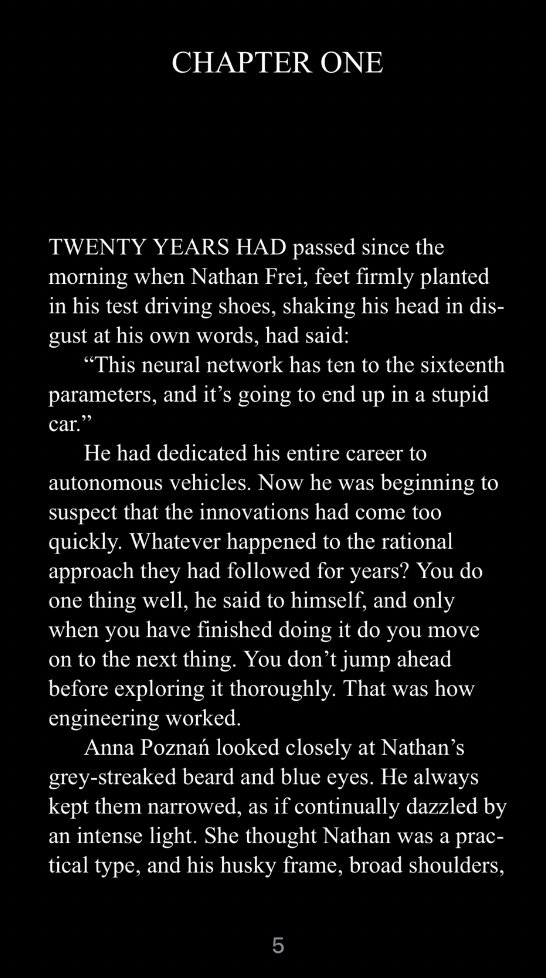Leggendo Wohpe
You can buy Wohpe on iBooks, for now the ebook here, on Kobo here, and soon on Kindle.
There are very, very few people who are both excellent engineers and excellent communicators; so rare, in fact, that I can count them on one hand:
- Paul Ford, whose writing about technology was my first hint that technology is something you could write about in both a thoughtful and not serious way
- Paul Graham’s earlier works, don’t need to expound here, but I think about maker’s schedule on a regular basis
- Ellen Ullman, whose elegance in writing about how humans and computers work together is something I can only aspire to
- Maciej Cegłowski, the founder of Pinboard, whose essays convinced me that data is as much of a liability as it is an asset, and who taught me how to write for technical audiences
As someone who spends her life straddling writing code and prose, I am always on the lookout for technical people who are also writers, to see how they divide the time between technical work and writing, and honing this skill in myself as well.
Last year, antirez, who I consider to be one of the greatest developers I know, finished writing something - not code, but a novel, Wohpe, and he asked me to beta-read the English translation of Wohpe.
I spent the last few weeks of 2022 reading the English version of the book. We then tweaked it together, fiddling with words and sentences, sometimes even going back to the original Italian, until they fell into place.
antirez says about writing the book that,
I believe the most sharp difference between writing and programming is that, once written, edited and finalized, a novel remains immutable, mostly. There are several cases of writers returning on their novels after several years, publishing a bug fixed version of it, but this is rare and, even when happens, a one-shot process. Code evolves over time, is targeted by an endless stream of changes, often performed by multiple people. This simple fact has profound effects on the two processes: programmers often believe that the first version of a system can be quite imperfect; after all there will be time to make improvements. On the other hand writers know they have a single bullet for every novel, to the point that writing prose is mostly the act of rewriting. Rewriting sentences, whole chapters, dialogues that sound fake, sometimes two, three, or even ten times.
Collaborating with someone on writing is, in some ways, very similar to code: you have something, you want to refactor it. But the way you do it is very different from code. In code, you have to agree on the laws of physics: if you write non-optimal code, the computer will tell you, your network will tell you, and the people downstream from you will also tell you. There is some give and take between what “good” code means, but everyone agrees that good code looks a certain way.
In editing, things are more fluid. There is no version control. You work together in a game of give and take between your shared experiences of what “sounds” right, the flow and vision of the book, and the viewpoint of the author. Your job as an editor is to make the author the best version of themselves they can be, and as Bob Gottlieb puts it, get out of the way.
This glorification of editors, of which I have been an extreme example, is not a wholesome thing,” he once told The Paris Review. “The editor’s relationship to a book should be an invisible one,” he said then and believes today. “The last thing anyone reading Jane Eyre would want to know, for example, is that I had convinced Charlotte Brontë that the first Mrs. Rochester should go up in flames.” He insists editing is neither an art nor a craft. It’s just “what I do,” he says. “I’m not an abstract thinker. I don’t think, really — I just react, which is what editors are supposed to do.”
My contribution is tiny compared to the Herculean task of first dreaming it up, writing it in Italian, then translating it to English; nevertheless, I am so thankful to have been part of it. It was so much fun.
The novel itself is about the rise of neural networks far more complicated than those we see even today and how they shape the world of the future, and how people react to them. Here’s how it starts:

What’s even more interesting than the plot itself is that a novel is like an intimate conversation with someone and how they view the world. You get a first-row seat to their mental model of the universe, and that is immensely cool and gratifying.
antirez says, about writing code,
I write code in order to express myself, and I consider what I code an artifact, rather than just something useful to get things done. I would say that what I write is useful just as a side effect, but my first goal is to make something that is, in some way, beautiful. In essence, I would rather be remembered as a bad artist than a good programmer.
It is this level of thought and attention to beauty and the craft of writing that is evident throughout the book: the putting together of plot points and ideas that move the plot forward, of trying to really understand the impact of the actions we as humans are taking now and how it might impact our children, of the debate between whether AI is conscious or not, of what could be.
I’m so excited that the book is now out in English, and I hope you enjoy reading it as much as I enjoyed reading and thinking about it.